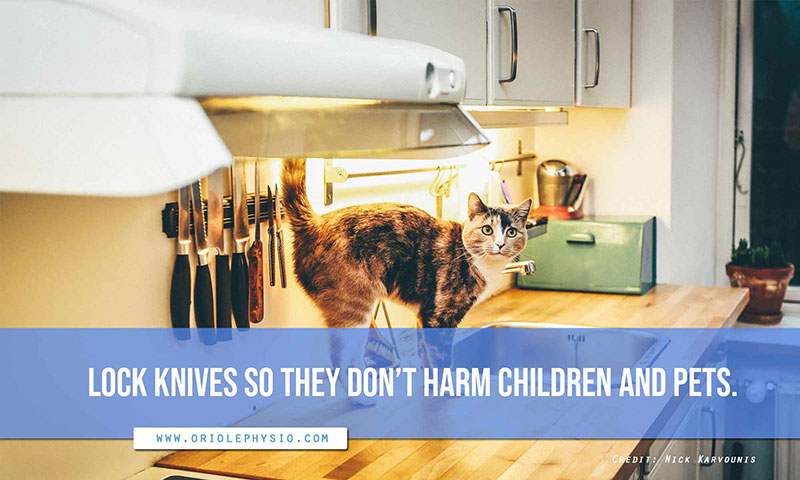Tips to Avoid Everyday Home Accidents
Did you know that the highest number of accidents happen in the house? Home can be your safe haven, and you probably feel comfortable and relaxed there. Follow these tips to avoid everyday home accidents.
Facts about accidents in the house:
- The most frequent home accidents are falls. (The risk of falling increases with age.)
- Most accidents occur in the living room.
- Among children, boys are more likely than girls to have a home-related accident.
- Children under the age of five and senior citizens over the age of 65 are at the greatest risk.
- The most common kitchen injuries are caused by knives.
Protect yourself and your family from basic hazards around the house. Here are the most common accidents that occur at home, as well as some tips and strategies for how to prevent them.
Falls
Of the millions of reported falls every year, many take place in the bathroom. It’s clear why that’s true: the bathroom is a small, sometimes cramped room, and it’s very easy to slip on water from a sink or tub. Hard, often slippery surfaces like marble and ceramic tile also create the potential for serious injury.
Falling from a high place is another type of accident that can occur at home. People can fall off ladders, balconies, or down a flight of stairs. Consider a few precautions to make extra certain that none of these scenarios come to fruition:
- Put safety bars in the bathtub and shower.
- Keep children safe by installing safety gates at the top and bottom of all staircases, and check them frequently to make sure that they’re secure.
- Install railings along staircases.
- Learn how to use a ladder properly and place it on a flat surface to prevent it from tipping over. If possible, have someone available to hold it steady as you climb.

Fire
Fires primarily start in the kitchen, and a small one can spread very quickly. Items placed too close to an open flame or food left unattended on the stove or in the oven put your home at risk. Other dangers include candles that are left unattended, appliances that aren’t turned off, or when children play with matches or lighters. Here are some tips to prevent a fire:
- Never leave the kitchen when you’re cooking. If you can, have someone keep an eye on the stove or monitor food in the oven if you need to leave for any length of time. Kitchen fires start fast and need to be put out immediately. The same is true of candles or an outdoor barbeque; leaving them unattended can be dangerous.
- Don’t smoke in your home, especially when you’re in bed. There’s great potential for a fire to start if a lit cigarette is dropped or if you happen to fall asleep with one in your hand.
- Install smoke detectors on each floor and check them every six months to make sure they’re working properly. You can now purchase smoke alarms that allow you to record a personal warning message and instructions in case of an emergency. (Research shows that children are more apt to wake up to a personalized parent voice alarm than one that produces a generic tone.)
Carbon monoxide detectors should be installed around your home as well.
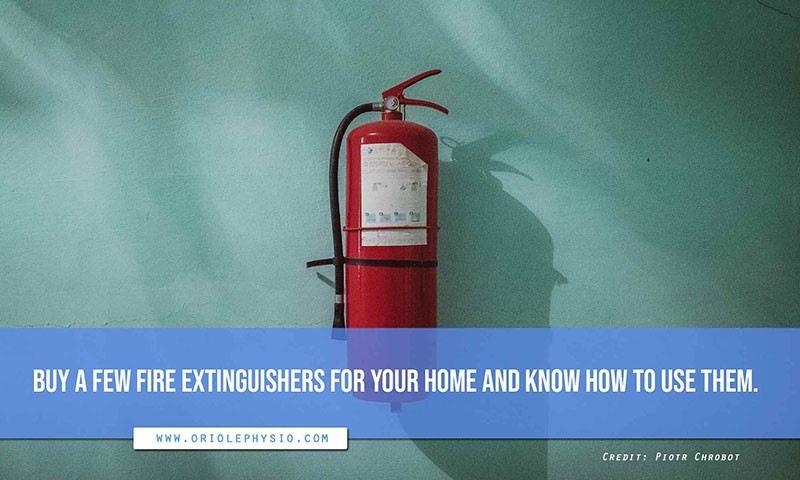
Many retail outlets sell fire extinguishers at a relatively inexpensive cost. Purchase one for every floor of your house and learn how to use them properly. Children should also be aware of the proper care and handling of fire extinguishers.
Closing your bedroom door at night or whenever you’re asleep may seem like a simple step, but it can be life-saving. Fire can move much more quickly throughout a home when doors are left open. Keeping them shut deprives the fire of oxygen and will reduce the speed at which it’s spreading, giving you more time to escape and firefighters more time to contain the blaze. Your exposure to dangerous flames and toxic levels of smoke are also decreased.
Electrical Mishaps
Many electrical accidents can happen at home. If ignored, poor wiring or old appliances can start a fire, and overloaded electrical outlets can cause sparks or outages. The following safety tips will help you avoid an electrical accident in your home:
- Cover up electrical sockets so children can’t get their fingers inside.
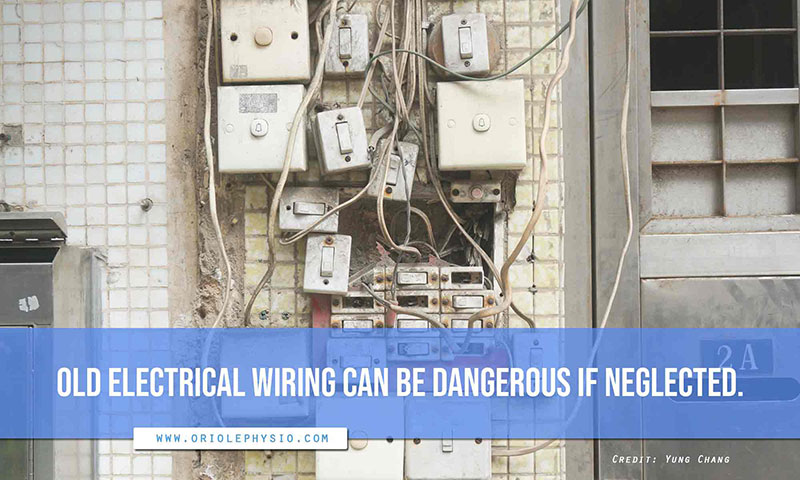
- Have a reliable contractor examine the wiring in your home every five years.
- If an appliance becomes problematic, stop using it immediately and don’t turn it on again until you are sure it’s safe to do so.
- Replace electric blankets every two years.
- Keep electrical appliances away from sinks and bathtubs.
- Unplug small kitchen appliances after use.
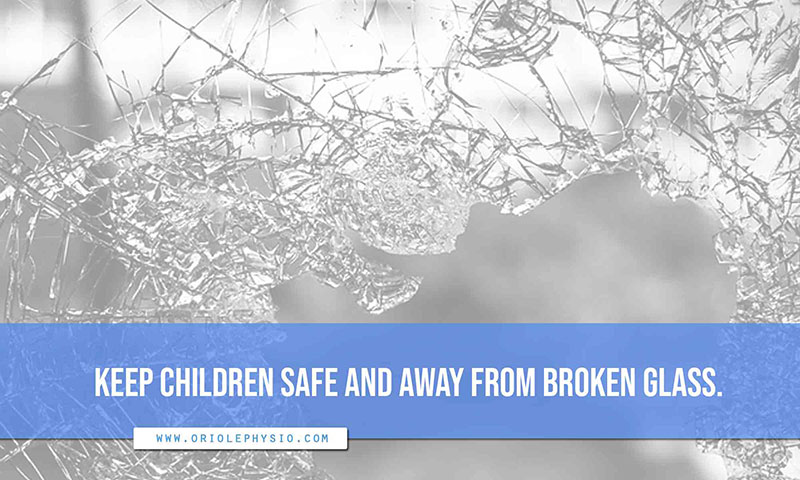
Breaking or Running into Glass
When glass breaks, sharp pieces can go flying and result in injury. Follow these safety tips if you have glass doors or windows (or large mirrors) in your home:
- Have children play away from glass doors that they could fall against or break.
- Install safety glass on windows and doors. This type of glass is much more difficult to break and decreases the likelihood of accidents.
- Keep rooms with glass doors well lit so the glass can be seen more clearly.
- Vacuum or sweep up broken glass immediately and double check that all sharp pieces have been removed. (Always wear shoes when cleaning up shattered glass.)
Home Improvement Project Injuries
If you love DIY projects and have a dozen crafts and activities in a state of mid-completion, safety is key. Home enterprises can be empowering and they may save money, but there are risks, depending on what the project entails. The following tips will help you to prevent injuries:
- Keep tools in proper working order. After use, check for rust or damage.
- Before taking on a job, be certain it’s something you can do and that you have the expertise to execute it correctly; some jobs require a professional, after all. Taking on a task that you aren’t qualified to do risks injury.
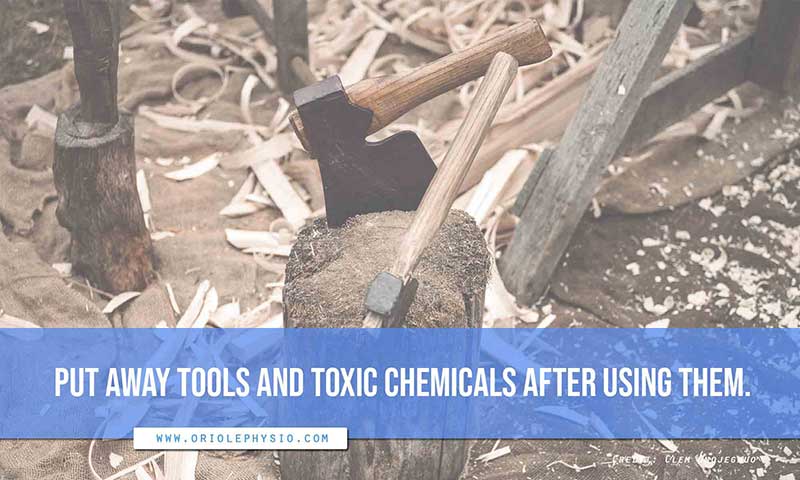
- Store tools and toxic supplies like paint and cleaning products in a locked cupboard after use. Curious children and pets can be injured if dangerous items are easily accessible.
This guide will hopefully provide the information you need to keep your home as safe as possible for everyone. Have a plan of action should an accident occur, and post important emergency phone numbers in a prominent place. Practice mock fire drills so everyone knows what to do and where to go in the event of a fire.
At Oriole Physiotherapy and Rehabilitation Centre, we are dedicated to giving you the highest quality care with the most up-to-date technology available. If you’re injured, we want to help you recover as quickly as possible. We offer many different services, including custom orthotics, massage therapy, and advanced treatments for chronic pain in North York. Contact us at (416) 221-0772 to schedule an appointment.

